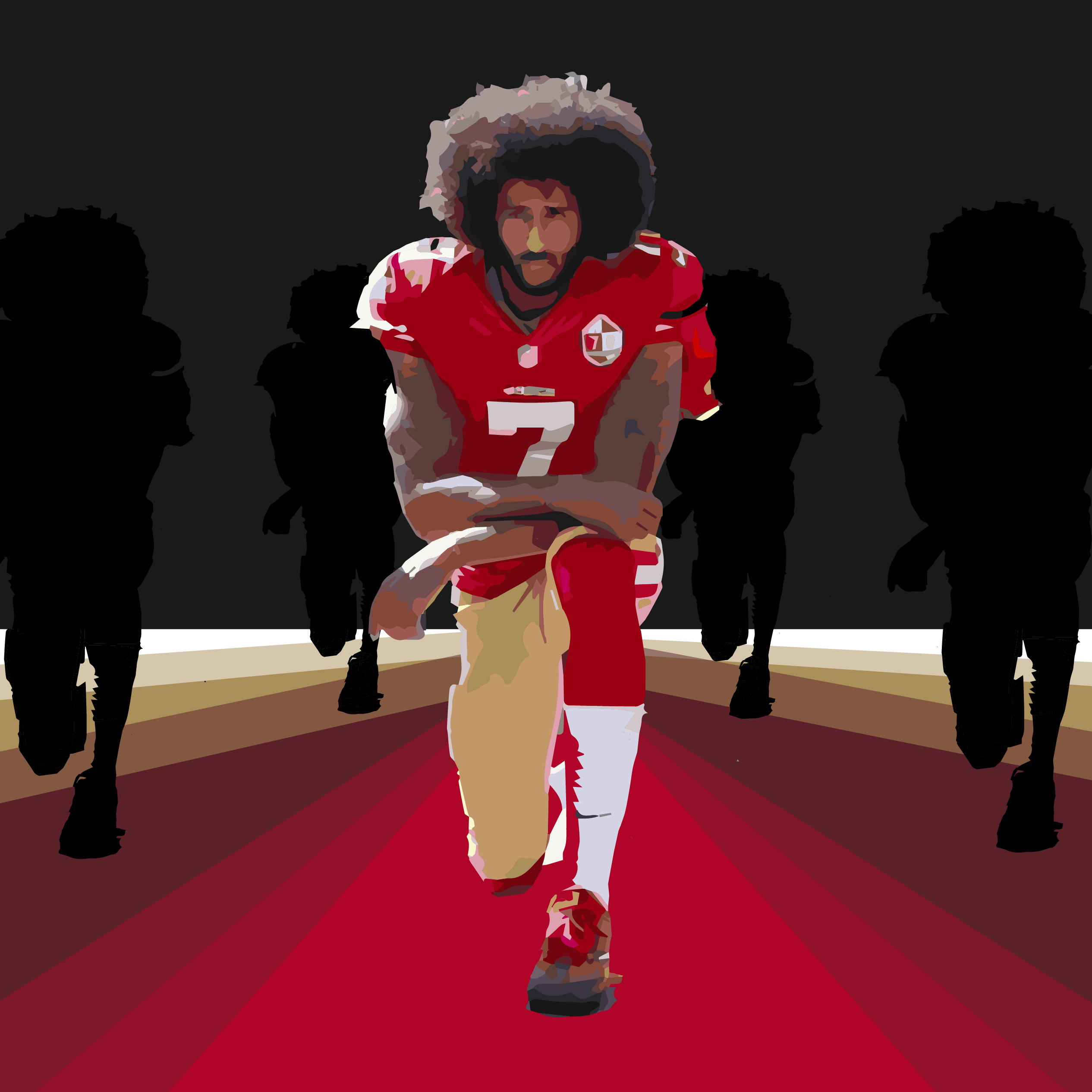In 2018, I went to a Dodgers vs. Giants game in San Francisco with a friend and her dad. Nothing about this situation was new. As a lifelong Dodgers fan, nothing is more normal than going to the city to watch my team play. But I remember that day for another reason.
As we were told to stand if we were able for the national anthem, I felt indecision and hesitated.
Following Colin Kaepernick’s lead, Berkeley High School’s football team protested the national anthem, and I wrote about it for the school’s student newspaper. I started my own boycott of the NFL and co-founded a flag football league on Sundays. I supported the protest, but I was not a participant.
For some reason, on that day in what was then AT&T Park, I stood up. Afterward, my friend asked if I stood because her father was there, but I don’t think that was it.
I don’t think I was afraid of standing out, either. I was, after all, wearing my Dodgers hat in a sea of brown and orange. I looked, but I could not find a reason why I stood. So I told myself I wouldn’t anymore.
Last year, even when I was in France wearing red, white and blue cheering on the U.S. Women’s National Team to World Cup gold, I sat. I cover an enormous number of Stanford Athletics events for The Daily, and I sit when the anthem is played.
Once, another writer on press row asked if I was protesting the national anthem.
I told him yes. I told him, rather flippantly, that “I am not a fan of police brutality.” He responded something along the lines of “not many are.”
Honestly, though, for however glib my answer was, that has always been my rationale. If there truly are few fans of police brutality, everyone would participate in Kaepernick’s protest. Before Stanford games, in which predominantly Black athletes compete, I would look around Stanford Stadium or Cagan Stadium or Maples Pavilion and know that Stanford fans are not fans of police brutality.
More than that, if not many people are fans of police brutality, there would be significantly more pressure on prosecutors to seek justice. If everyone was truly “not a fan,” there would be far fewer complicit people. If there were no fans of police brutality, we would not have to wait for a cruel event to occur in order to defy the white supremacist system. If everyone saw the problem that police represent, we would have abolished police.
The same voices that derided Kaepernick’s peaceful protest can be found in American history in creating a slave patrol and in the present hijacking of protests to shift focus instead to lootings. These are the same voices that described the Black Panther Party for Self-Defense as militant and the voices that were silent when The Free Breakfast for School Children Program was mentioned. It is because the same voices that villainize Black people founded the police force that the system must now be uprooted.
While I try, I know that I too often fail to actively resist at every turn. When I kneel, however, I am reminded that even the most peaceful forms of protest resist institutions. I am reminded how strict and unfair the rules are. I am reminded that the type of change I am seeking will not be given.
Along those same lines, my answer was not and is not enough. I do not protest simply because I am not a fan of police brutality but because I am actively studying the historical links to slavery, deliberately engaging the role of white solidarity in liberation movements and attempting to speak up where I see injustice. I kneel because there is heartbreak in every name and in any system that would take names. And there is so much more I need to do to educate myself.
Just as I have always held a sense of pride in being a Dodgers fan knowing that Jackie Robinson integrated baseball, I am proud to cover Stanford Athletics as so many athletes and teams have used their platforms at this moment to make necessary calls to action. With the outpouring of messages of ally-ship, or even better, accomplice-ship, I fully expect to join more people in protest when sports are able to resume.
This is not a new phenomenon, but it has to be a turning point.
Contact Daniel Martinez-Krams at danielmk ‘at’ stanford.edu.
